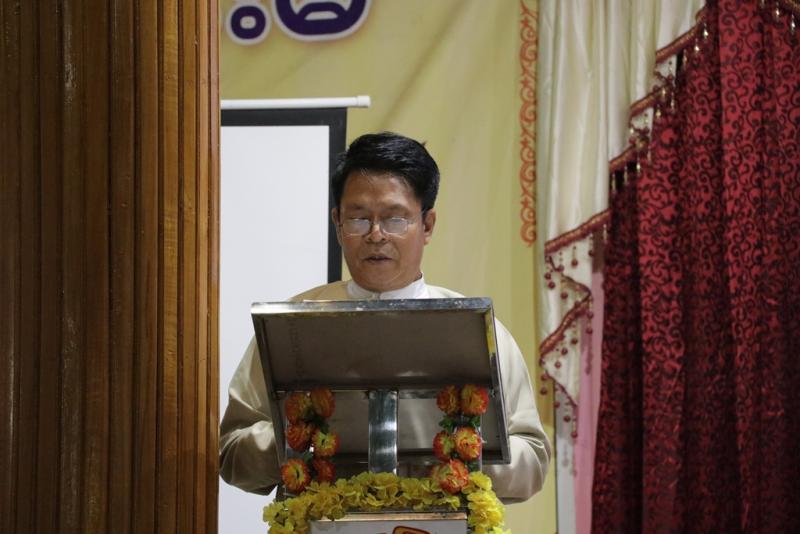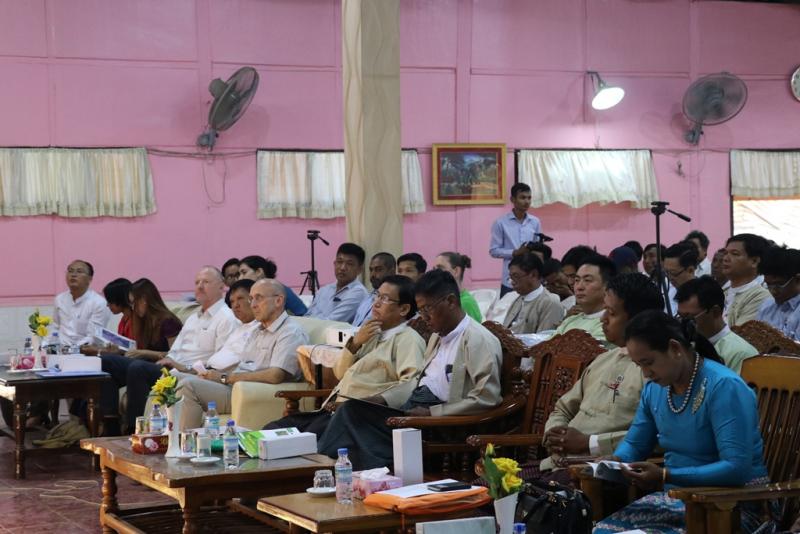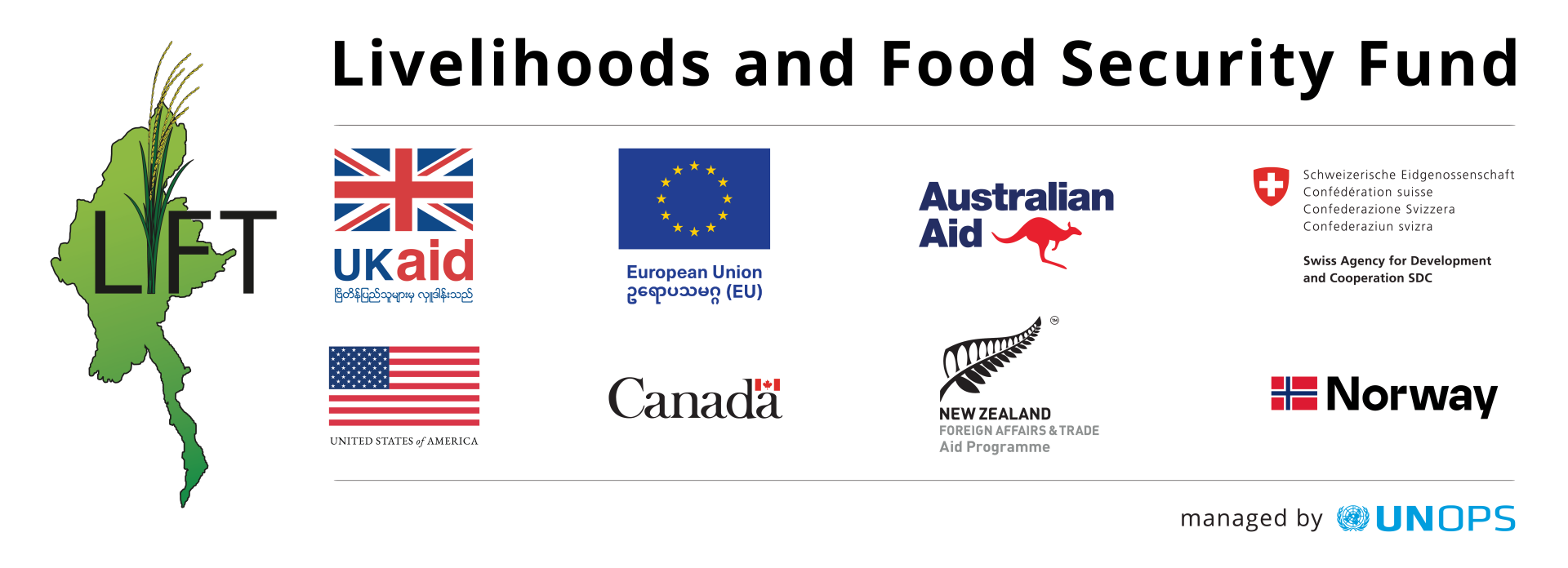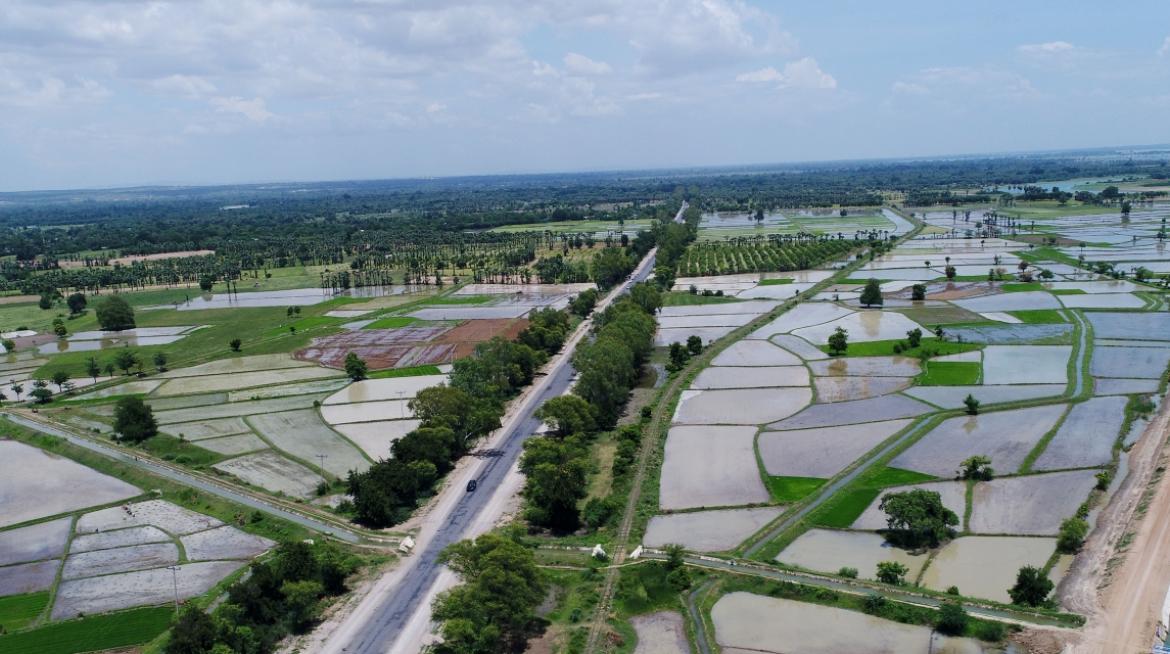
Pumped irrigation project transforms agricultural production made transformative in central Dry Zone
March 26|Sagaing and Nay Pyi Taw
LIFT's Pyawt Ywar Pump Irrigation Project (PY-PIP) in Sagaing Region was brought to a successful close with the inauguration of ‘Five Village Bless’ Water User Association on 25 March in Myinmu Township, located in Myanmar’s Central Dry Zone. The pump irrigation rehabilitation project benefitted from a strong partnership between the Government, development partners and communities since the start of the project in, December 2016.
U San Paw, the Deputy Director of Irrigation and Water Utilisation Management Department (IWUMD) Sagaing Region, gave the opening remarks at the event on behalf of Sagaing Regional Minister for Agriculture, Livestock and Irrigation U Kan Zar Mone. He highlighted: “With transparent and close collaboration throughout the project, we have learned a lot. The official registration of the water user association of PY-PIP is the first-ever initiative amongst the pump irrigation projects across the country and the association will be able to manage water users and facilitate effective water allocation in the project area.
“I am very glad to see that farmers have managed to transform their agricultural production with the pump-irrigated water supply. The support of partners and donors is much appreciated”, he continued.
Photo: Pump irrigation project closure and learning experience sharing workshop in Sagaing Region
The event was attended by donors, implementing partners, regional and township-level officials from the Ministry of Agriculture, Livestock and Irrigation (MOALI), including Department of Agriculture (DOA), Department of Agriculture Land Management and Statistics (DALMS), Department of Planning, Agricultural Mechanisation Department (AMD), General Administration Department, Members of Parliaments and farmers.
Harald Kreuscher, Senior Programme Officer (a.i). from LIFT, shared that the PY-PIP was a pilot project made possible after several studies and surveys and consultations with key stakeholders at township and union level. “Farmers we met during the site visit said they earned more than before. Their shift to cash crops has just started and has a lot of potential. We hope that initiatives of this project can be replicated in other [pump irrigation project] schemes”, Harald stressed in his opening remarks.
Dr Petra Schmitter, Project Manager from the International Water Management Institute (IWMI), presented learning experiences on partnership and collaboration, innovative approaches, the establishment of water user groups to facilitate equal water distribution and recommended actions for maintaining the project’s impacts for longer term. After the presentation, there was a long interactive question and answer session on how to keep up efforts made by the project, and approaches for continued collaboration among respective line departments and communities were discussed.
Background
Water is crucial in agriculture, particularly for areas with low rainfall. Global warming impacts regions worldwide, and the Central Dry Zone is one of most affected regions in Myanmar. The duration of the monsoon season changes and the rainfall events are fewer, but with more rain per event. Without irrigation, farmers face the consequences of these changes and can only cultivate one crop per year. With irrigation, two or three crops per year is possible.
The Pyawt Ywar Pump Irrigation Project (PY-PIP) is one of more than 300 pump irrigation projects constructed by Government of Myanmar as part of its strategy to increase agricultural production, particularly of rice. The scheme draws water from the Mu River through one primary and two secondary pump stations, irrigating a range of crops including paddy (monsoon and summer), green gram, chick pea, sesame, groundnut, wheat, maize and cotton. It was constructed in 2004 with a nominal command area of 5,000 acres. In common with many other pumped irrigation projects (PIP), the overall performance of the PY-PIP has been limited, and the actual area irrigated has consistently been less than a third of the nominal command.
Project brief
In collaboration with the Irrigation and Water Utilisation Management Division (IWUMD) of the Ministry of Agriculture, Livestock and Irrigation (MOALI), LIFT has invested five million USD in the Pyawt Ywar pump irrigation rehabilitation project in Myanmar’s central Dry Zone to improve livelihoods of local communities through irrigation, as well as to improve irrigation investment decisions made by the Government, development partners and the private sector. The infrastructure and agricultural technical support project is implemented by United Nations Office for Project Services (UNOPS), and a consortium led by the International Water Management Institute (IWMI) and National Engineering and Planning Services (NEPS), with Welthungerhilfe (WHH) and International Crops Research Institute for the Semi-Arid Tropics (ICRISAT). Learn more about the project through a comprehensive photo story: https://bit.ly/2W8QjRq
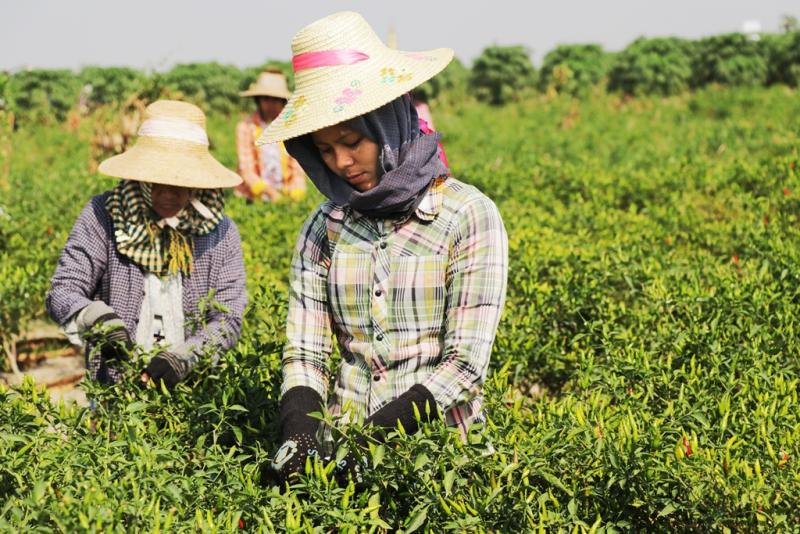
Photo: Chilli harvest time in Nabekyu Village
Providing good governance and tangible results to local communities
The project has developed guidelines on ‘Establishing Water User Associations in Pump-Based Irrigation Schemes in Myanmar’s Central Dry Zone’ which will be published shortly. This is a first-of-its-kind guideline document for Myanmar to help organisations in setting up sustainable water users’ associations for pump-based irrigation schemes together with IWUMD and other relevant Government departments.
Helping one thousand direct beneficiaries, i.e. more than four thousand farmer families around the irrigated area to reach their full potential of agricultural productivity, around four thousand acres of farm land is now supplied with enough water for variety of crops.
“We no longer argue for water like before. We have learnt better farming in the two years, but this would amount to nothing if we couldn’t get water”, the farmers in Pyawt Ywar village said. “Now we can grow crops at least for two seasons and we expect more in the future.”
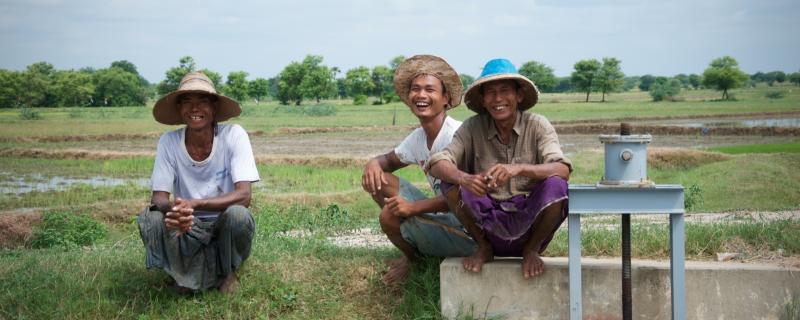
Photo: Farmers in the field (IWMI)

